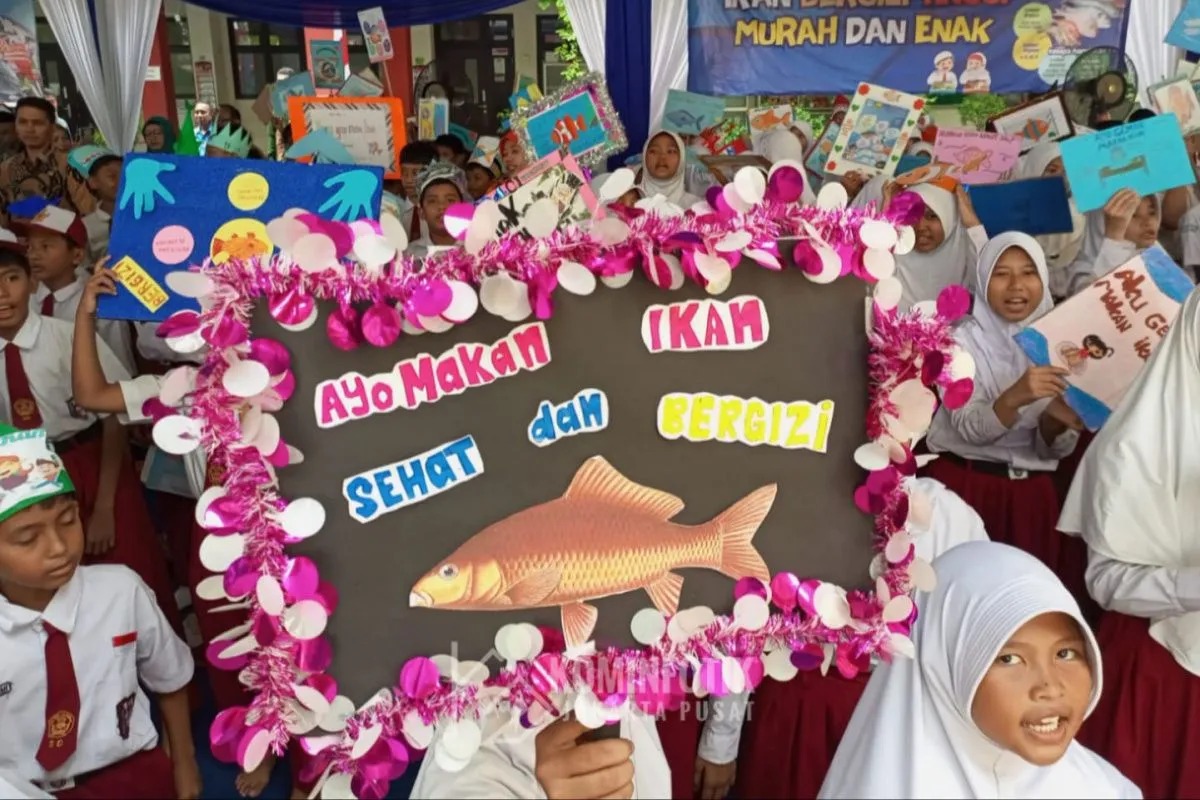The South Jakarta Food Security, Marine, and Agriculture Sub-agency (KPKP) successfully reached 4,000 children and toddlers through its Safari Campaign for the Movement to Promote Fish Consumption (Gemarikan). Head of Fisheries, Andi Dala, explained that the initiative took place from July to August 2025 across seven different locations. He highlighted that this year’s campaign exceeded expectations, surpassing last year’s figure of 3,000 participants. According to the agency, the main goal was to encourage healthier eating habits among children by integrating fish into their daily diet.
The largest gathering occurred at the South Jakarta Mayor’s Office, where 2,380 children and toddlers participated in educational activities. Two primary schools—SDN Ragunan 08 in Pasar Minggu and SDN Pondok Pinang 10 in Kebayoran Lama—each contributed 450 students to the campaign. Additional outreach was conducted at local community centers, health posts (Posyandu), and other venues specifically targeting toddlers. Organizers emphasized that the program was not just about numbers, but also about fostering long-term awareness of the nutritional benefits of fish.
Officials underlined that regular fish consumption could play an important role in reducing stunting rates in South Jakarta. Dala pointed out that parents who accompanied their children also learned practical tips for preparing nutritious, protein-rich meals. Through demonstrations, parents were shown how to make fish-based dishes more appealing and varied, helping children build positive associations with healthier food. By targeting both children and parents, the campaign aimed to create a culture of balanced nutrition at the household level.
Looking forward, KPKP hopes to scale up the campaign to reach even more families in the coming years. Dala expressed optimism that beyond tackling stunting, Gemarikan has the potential to cultivate a “golden generation” of Indonesians who are healthier and stronger. He stressed that proper nutrition in childhood would translate into improved academic and physical performance in the future. As the initiative grows, it is expected to serve as a model for other regions in promoting public health through accessible and sustainable dietary programs.
Alexander Jason – Redaksi



